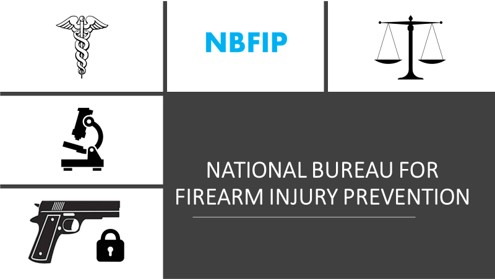2020, the year during which COVID -19 took three hundred thousand American lives, was also the deadliest to date for victims of firearm injury. 43444 people died from bullet wounds in the US in 2020, a 10 % increase from 2019 according to the Gun Violence Archive, and a 50% increase from the 28663 firearm deaths recorded by the CDC in 2000. How can the U.S. turn this health crisis around? We can learn from our past successes and failures and leverage our great strengths in science and health to save lives in the future.
Our failed response to the Covid-19 epidemic starkly illustrates how the lack of a comprehensive, coordinated, science-based approach to a national health crisis can lead to tragic and needless loss of life. Unfortunately, the same lack of coordination and strategy has hampered efforts to reduce firearm deaths over the past decades. A problem of the magnitude, complexity and intractability of firearm injury requires a long term, comprehensive and public health-based strategy. We actually have a successful precedent in this nation’s successful campaign to reduce motor vehicle deaths. The National Highway Safety Bureau, a Federal agency formed in 1966 dedicated to reducing motor vehicle injuries succeeded in reducing deaths by 2/3 in the ensuing 30 years.
Washington Ceasefire is at the vanguard of groups around the country who propose a similar solution to firearm injuries. We endorse the creation of a single federal agency focused on preventing fatal and nonfatal firearm injuries: a National Bureau for Firearm Injury Prevention (NBFIP). The NBFIP’s mission, like that of the highway safety bureau, would be to coordinate a multidisciplinary, multifaceted effort to reduce firearm injuries based scientific evidence and fundamental public health principles. It would be run by experts in public health, medicine, engineering, communications, law enforcement, firearm training, distribution and use and other sectors of civil society. Its inner workings would be transparent and nonpartisan. It would take the lead in setting the nation’s research agenda and developing, testing and implementing behavioral change and safety technologies. It would set out legislative priorities for saving lives. It would oversee campaigns to encourage behaviors likely to reduce firearm injuries.
We begin this new year with hopes of building stronger, safer communities. The NBFIP concept is an idea whose time has come. In 2021 Washington Ceasefire will be working to bring this idea to the forefront of the discussion over how to reduce firearm injuries in the years and decades to come. It is the long term strategy our country needs, and to date, has lacked. WA Ceasefire has joined like-minded grass roots groups around the country in calling for a long term, comprehensive, public health based approach to the firearm injury crisis in our country.
Gregory Engel, MD, MPH, FAAFP

